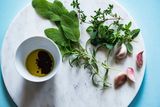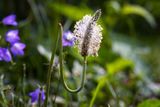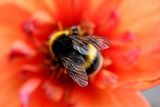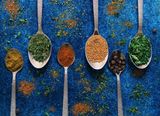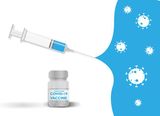Author: Rositsa Tashkova, Master of Molecular Biology and Microbiology
Glaucoma is a serious eye disease that might develop without symptoms and often remains undiagnosed. The most common cause of the disease is increased pressure in the eyes (intraocular pressure), sometimes due to poor drainage of the fluid that normally fills the eyeball.
There is also the so-called normal-tension glaucoma (NTG) when the disease occurs in people with normal internal pressure.
Glaucoma leads to damage of the optic nerve - which ultimately causes blindness. People who have a hereditary factor (someone in the family has also suffered from the disease) are at greater risk.
It is usually found by accident during a routine eye examination, because the symptoms appear at a very advanced stage of the disease, when it is too late. Detected in time, glaucoma can be delayed by appropriate treatment prescribed by a doctor - eye drops, medication, laser or surgery.

In this article, we will address the question of what we can do with natural means to support our prescribed treatment for glaucoma. The condition is serious and should not be underestimated due to the irreversible consequences for our vision and life.
What foods, vitamins and minerals should you take if you suffer from glaucoma
There is evidence that it is important for patients with glaucoma to take food rich in antioxidants [ref.6], vitamin A and C, carotenoids.
These substances are found in fresh fruits and vegetables - especially green leafy vegetables, such as spinach, cabbage, turnip, beets, carrots. Dark fruits are rich in antioxidants - chokeberry, blueberries. There is evidence that peaches can also help glaucoma sufferers. [ref.1]
It is advisable to avoid coffee, as it can further increase intraocular pressure. Instead, it can be replaced with green tea, which contains epigallocatechin gallate (EGCG) - an extremely powerful antioxidant that, according to some studies, can help people suffering from glaucoma and retinal diseases caused by oxidative stress. [ref.2]
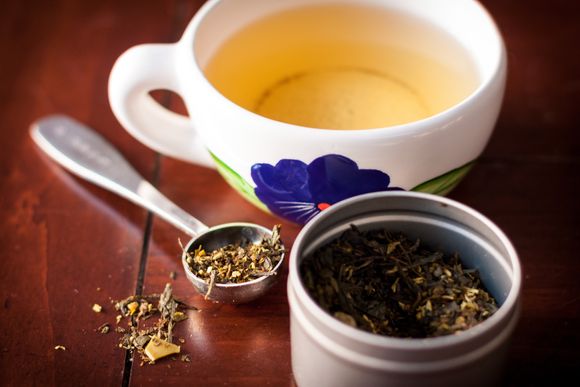
Despite the variety of affordable foods today, some people suffer from deficiency of certain vitamins and minerals. These deficiencies may worsen the condition of glaucoma patients, but the good news is that they can be diagnosed using a simple blood test and measures can be easily taken to address them.
These include: magnesium, calcium, zinc, vitamin D [ref.3], vitamin B-complex, A, C and E, folic acid. Melatonin, lipoic acid and vitamin B12 can also help as supplements [ref.7].
What medicinal plants might help with glaucoma
According to some studies, certain herbs and medicinal plants could improve the condition and slow down to a certain extent the progression of glaucoma, combined with the conventional treatment prescribed by the doctor.
Baikal skullcap or Chinese skullcap (Scutellaria baicalensis)
In 2015, a study was published [ref.4], according to which the substance baicalein - flavon, isolated from the roots of the Baikal skullcap or also known as Chinese skullcap plant, can lower intraocular pressure by improving the rate at which fluid drains from the eye.
Baikalein is also found in other plants, such as thyme.
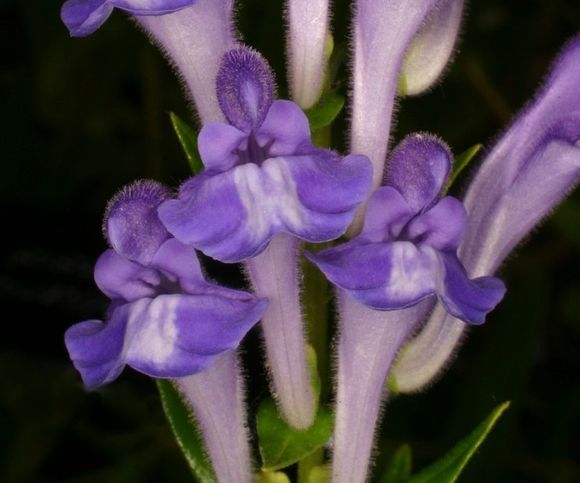
Ginkgo biloba might lower intraocular pressure
Ginkgo biloba extract has been found to increase blood flow to the eyes, improve the survival of retinal cells and protect against oxidative stress - properties that are important for fighting glaucoma.
It is believed that decreased blood flow to the eyes is the main cause of glaucoma, in which intraocular pressure is normal, not elevated. Several studies have been conducted to check whether Ginkgo biloba extract can help sufferers of this type of glaucoma and the results are encouraging. [ref.5]
European blueberry (Vaccinium myrtillus)
It is also called bilberry, wimberry, whortleberry. There is evidence that European blueberry extract taken orally has a neuroprotective effect and can protect retinal ganglion cells in sufferers of glaucoma and other diseases affecting the retina. [ref.8]
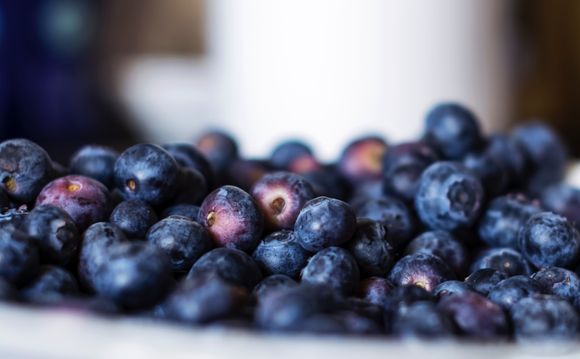
Saffron (Crocus sativus)
According to one study from Iran, after a 3-week intake of saffron capsules, there was a significant decrease in the intraocular pressure of the test group of patients. According to scientists, this may be due to the antioxidant effect of saffron. [ref.9]
Coleus forskohlii also known as Plectranthus barbatus
The tubers of this herb contain the substance forscoline. It can lower intraocular pressure when externally administered.
There is evidence that when taken orally, forscoline reaches the eyes and can exercise its effect there. [ref.10]
Given the severity of the disease, it is advisable to discuss the intake of new herbs and supplements with the attending physician.


